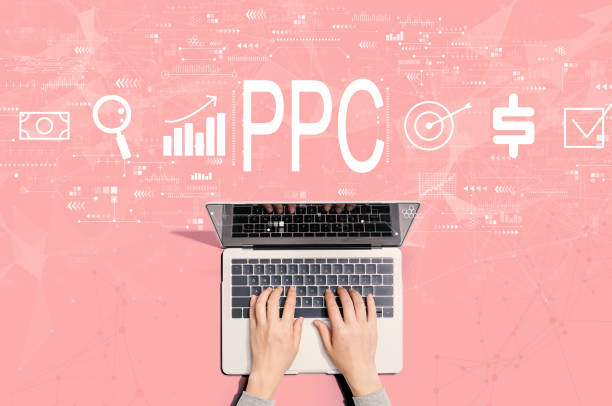
In today’s competitive digital landscape, small businesses must leverage every available tool to stand out. One of the most effective ways to gain visibility and drive targeted traffic is through small business PPC management. Pay-per-click (PPC) advertising allows businesses to appear at the top of search engine results, ensuring immediate visibility.
As I have researched, many small businesses struggle with PPC due to limited budgets and lack of expertise. However, with proper planning, the right strategy, and the help of a small business PPC agency, companies can achieve great results. This guide will provide insights into effective PPC management for small businesses, ensuring you get the most out of your investment.
Why Small Businesses Need PPC Advertising
PPC advertising is crucial for small businesses because it provides immediate traffic and measurable results. Unlike SEO, which takes time to generate organic traffic, PPC campaigns deliver instant visibility.
As per market research, here are the key reasons small businesses should invest in PPC:
- Quick visibility: Appear on top of search results instantly.
- Targeted audience: Reach people actively searching for your products or services.
- Budget control: Set daily or monthly budgets to avoid overspending.
- Measurable performance: Track ROI with real-time data.
A well-optimized PPC management for small business ensures that every dollar spent contributes to increased leads and sales.
Setting Up an Effective PPC Campaign for Small Businesses
To ensure success in PPC advertising, small businesses must set up their campaigns strategically. Here’s a step-by-step guide:
1. Define Your Goals
Before launching a PPC campaign, determine your objectives. Do you want to drive website traffic, generate leads, or increase sales? Having clear goals helps in creating optimized campaigns.
2. Conduct Keyword Research
As per my knowledge, choosing the right keywords is crucial for PPC success. Use tools like Google Keyword Planner to find keywords that match your audience’s search intent. For example, terms like “small business PPC” or “small business PPC agency” can attract potential customers looking for PPC services.
3. Optimize Your Ad Copy
A compelling ad copy should:
- Highlight the unique value of your product or service.
- Include a strong call-to-action (CTA), such as “Get a Free PPC Audit” or “Boost Your Traffic Today.”
- Use keywords naturally to improve relevance and ad ranking.
4. Set a Budget and Bidding Strategy
Start with a manageable budget and choose an appropriate bidding strategy. Small businesses often benefit from manual CPC bidding, allowing better cost control.
5. Create High-Converting Landing Pages
Your ad’s success doesn’t just depend on the PPC campaign itself but also on the landing page. Ensure that:
- The page is relevant to the ad.
- It has a clear CTA.
- It loads quickly and is mobile-friendly.
A small business PPC agency can help design optimized landing pages for better conversion rates.
Common PPC Mistakes Small Businesses Should Avoid
While PPC is a powerful tool, small businesses often make mistakes that impact their ROI. Here are some common pitfalls and how to avoid them:
1. Ignoring Negative Keywords
Negative keywords prevent ads from showing for irrelevant searches. For example, if you offer paid PPC services, adding “free” as a negative keyword ensures your ad doesn’t show for users searching for free services.
2. Not Using Ad Extensions
Ad extensions provide additional information, such as contact details, site links, and reviews. They increase the click-through rate (CTR) and improve ad ranking.
3. Poorly Structured Campaigns
Organizing campaigns by product categories, services, or locations ensures better ad performance and easy optimization.
4. Lack of A/B Testing
Testing different ad variations helps in identifying the best-performing ads. Small businesses should experiment with headlines, descriptions, and CTAs to maximize conversions.
The Role of a Small Business PPC Agency
Managing PPC campaigns requires expertise, time, and continuous optimization. Partnering with a small business PPC agency can be beneficial in several ways:
- Expert Strategy Development: Agencies have experience in crafting effective PPC strategies tailored to your business needs.
- Better Ad Optimization: They ensure ad copies, keywords, and landing pages are fully optimized.
- Continuous Monitoring and Adjustments: PPC success requires constant monitoring and tweaking to improve performance.
- Access to Advanced Tools: Agencies use sophisticated tools for bid management, analytics, and automation.
Many small businesses prefer hiring an agency for PPC management for small business rather than handling it in-house.
How to Choose the Right PPC Agency for Your Small Business
Not all agencies are the same, and choosing the right one is essential. Here are key factors to consider:
1. Industry Experience
Select an agency that understands your business niche and has a proven track record in running successful PPC campaigns.
2. Transparency and Reporting
A good agency should provide detailed reports on campaign performance, including impressions, CTR, conversions, and ROI.
3. Budget-Friendly Services
As a small business, affordability is crucial. Look for agencies that offer flexible pricing plans and scalable solutions.
4. Strong Client Reviews and Case Studies
Check reviews and testimonials from past clients to assess the agency’s credibility and success rate.
Measuring and Optimizing PPC Performance
PPC success doesn’t stop at launching a campaign. Continuous monitoring and optimization are necessary for better results.
Key Performance Metrics to Track:
- Click-Through Rate (CTR): Measures how often people click on your ad after seeing it.
- Quality Score: Google assigns a score based on keyword relevance, landing page experience, and ad copy.
- Conversion Rate: Percentage of visitors who complete a desired action (purchase, sign-up, etc.).
- Cost Per Click (CPC): The amount spent on each click. Lower CPC indicates better efficiency.
- Return on Ad Spend (ROAS): Evaluates how much revenue is generated for every dollar spent on PPC.
Optimization Strategies:
- Adjust bids based on performance.
- Refine keywords to target high-converting ones.
- Improve landing pages for better engagement.
- Test different ad variations regularly.
Conclusion
Effective small business PPC management can be a game-changer in driving targeted traffic, increasing conversions, and boosting revenue. As per market research, businesses that invest in well-optimized PPC campaigns experience higher ROI than those relying solely on organic strategies.
By leveraging strategic keyword research, compelling ad copies, and continuous optimization, small businesses can maximize their advertising budget. Whether you manage PPC in-house or hire a small business PPC agency, staying informed and adaptable is key to long-term success.
If you’re looking for expert PPC management for small business, consider working with a professional agency to get the best results. A well-managed PPC campaign can elevate your brand and position your business ahead of the competition.






Leave a Reply